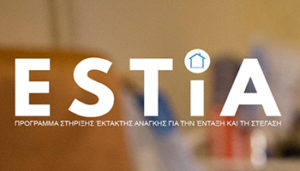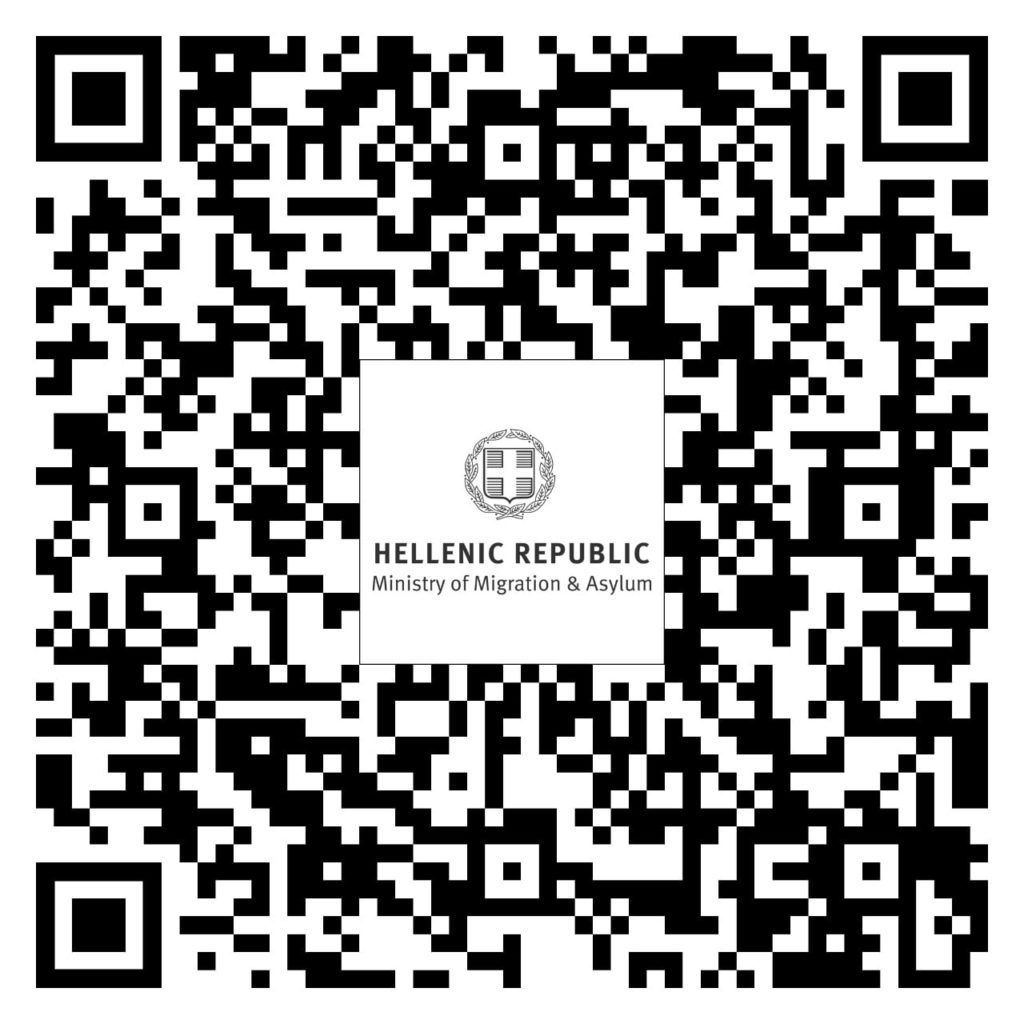Project ESTIA


Project ESTIA
The ESTIA 21 Program is funded by the European Commission (DGHOME). It is an accommodation program for applicants of asylum and their families.
The Reception and Identification Service of the Ministry of Migration and Asylum implements the program in collaboration with implementation partners..
The implementation partners of the program are bodies that provide accommodation or other services to beneficiaries of the program. Partners of the program collaborate with the Ministry of Migration and Asylum for the implementation of the program.
Implementation Partners of the program may be bodies such as national, regional, and local authorities, international organizations that have branches or representatives in Greece, unions, civil non-profit companies, branches of international organizations and foreign non-profit organizations in Greece, as well as other bodies (Joint Ministry Decision 270/05-02-2021).
- The Purpose of the program
The purpose of the program is to provide good living conditions to applicants of international protection by offering housing and supportive services (e.g., meals, psychological counseling services, etc.).
- Who can participate in the program
Beneficiaries of the program are:
- Adult applicants of international protection (including members of their families who are minors), taking into account the availability of accommodation positions in the Program and giving priority to vulnerable individuals as well as applicants of international protection who reach adulthood during their stay in hospitality centers or temporary hospitality centers for unaccompanied minors (law 4636/2019).
- How can applicants of international protection register in the program
Any legal entity under private or public law after registering in the electronic platform of the programmay refer applicants of international protect to the Reception and Identification Service, according to the selection criteria described in the Common Ministry Decision 270/2021..
Placement of beneficiaries in accommodation facilities is realized exclusively from the Reception and Identification Service.
- Pre-requisites for registering in the program
In order to take part in the program, applicants of international protection need to be:
- able to care for themselves or are supported by caregivers
- must not pose danger or threat with their actions or behavior to other beneficiaries or service providers of the facilities.
- must not use illegal drugs or addictive substances
In order to assess cases such as the above as well as beneficiaries' vulnerabilities, the competent body that implements the program may ask the professional opinion of state health providers.
- Important points for the accommodation of beneficiaries
The program ensures the following:
- equal treatment, good living conditions, security, protection of physical and mental health, protection of privacy and personal information.
- unity of the family and the best interests of children
- procedures for suitable placement in accommodation facilities
- prevention and management of conflicts and violence including events that involve psychological, sexual, racial or domestic violence
- active participation of beneficiaries in issues pertaining to their security and protection
- beneficiaries' contact and communication with family members, public bodies, international organizations, non-profit organizations
- procedures for beneficiaries to submit complaints
- existence of a code of conduct and confidentiality
- Benefits of the program: Accommodation
The program offers accommodation in houses and apartments. The program also includes meals and supportive services. The accommodation facilities of the program are kept and maintained according to required standards of security and health. Facilities include furniture (e.g., beds, tables and electric devices, etc.)
- Benefits of the program: Meals
- Meals are provided in the following cases: a)In buildings where there are at least 20 occupants, b) in accommodation positions for vulnerable individuals with at least 20 beneficiaries in the building, c) to those who reside in apartments and buildings that do not have kitchen or meal preparation facilities.
- Weekly meal plans are prepared with the supervision of nutritionists.
- Three (3) meals are provided for adults. For minors, there are 5 meals including brunch and an afternoon meal. There are special provisions for infants, toddlers, pregnant and nursing women, as well as elderly individuals and individuals with serious health issues.
- Meals are prepared close to consumption time
- The required hygiene standards are met according to health regulations
- Benefits of the program: supportive services
Information, counselling and support to beneficiaries with regards to processes that pertain to their rights and obligations, their registration in public education institutions, their heath care, taxes, banking, social security, contact with unemployment agencies and social protection organizations.
Psychological counseling services according to their needs.
Translation and interpretation services in languages beneficiaries can understand.
Transportation services to the accommodation facilities when required.
- Obligations of beneficiaries
During their stay, beneficiaries are required to cooperate with the partners that implement the program with regards to their social integration plan and activities, and necessary administrative procedures (e.g. tax registration, social security registration, opening a bank account, registration in employment agencies, or social protection organizations).
In order to remain in the program, beneficiaries need to abide with the regulation framework of the program.
The operation of the services and the accommodation facilities of the program are regulated by the "Internal Regulation of Program Operation," which binds the partners who implement the program. The Regulation addresses issues such as the admission and exit from the accommodation program, suspension and termination of accommodation benefits, the services and conditions provided, the rights and obligations of beneficiaries during their stay, the obligations of service providers, the surveillance system of the facilities, the sanctions for violating regulations, visitation processes and other issues.
- Suspension or limitation of benefits
According to Law 4636/2019 for International Protection, benefits are limited or suspended in cases such as those mentioned below:
- if applicants abandon the hosting premises without informing the competent administration officials or have not received the required permissions or abandon their place of residence to which they have been assigned by the competent authorities without the required permissions.
- if applicants have not declared a change in their personal information (e.g., change of address or place of residence, change of employment contracts etc.)
- do not respond to requests for information
- do not appear for their personal interview for their asylum application within the specified deadline
- when, without a justified reason, they do not immediately submit an application for international protection
- if they concealed financial resources and have benefited unfairly from the material conditions of reception
- if they have violated the accommodation centers’ rules of procedure, especially when they have demonstrated violent behavior
- and in other cases (according to law 4636/2019)
- Termination of benefits
Benefits of the program according to laws 4686/2020 and 4636/2019are terminated with the issuing of a positive decision with regards to international or subsidiary protection or with the issuing of a final decision that rejects the international protection application. Beneficiaries are required to leave the accommodation facilities within the period of thirty (30) days after the issuing of the above decisions. In order to protect family unity, the above deadline starts with the issuing of decisions on international protection for all members of the family. In case of a positive decision, read about Project HELIOS that provides accommodation to beneficiaries of international protection. In case the application for international protection is rejected, procedures for the return of beneficiaries to their home countries or countries of origin will begin immediately. If beneficiaries withdraw from their international protection applications, benefits cease immediately with the implementation of the withdrawal.
Τμήμα Προγραμμάτων Στέγασης & Υλικών Συνθηκών Υποδοχής,
- 196-198 Thivon Avenue, 3rd Floor, Ag. Ioannis Rentis, 18233, Keranis Building
- 213 162 9927
- ris.dpt.acc@migration.gov.gr

